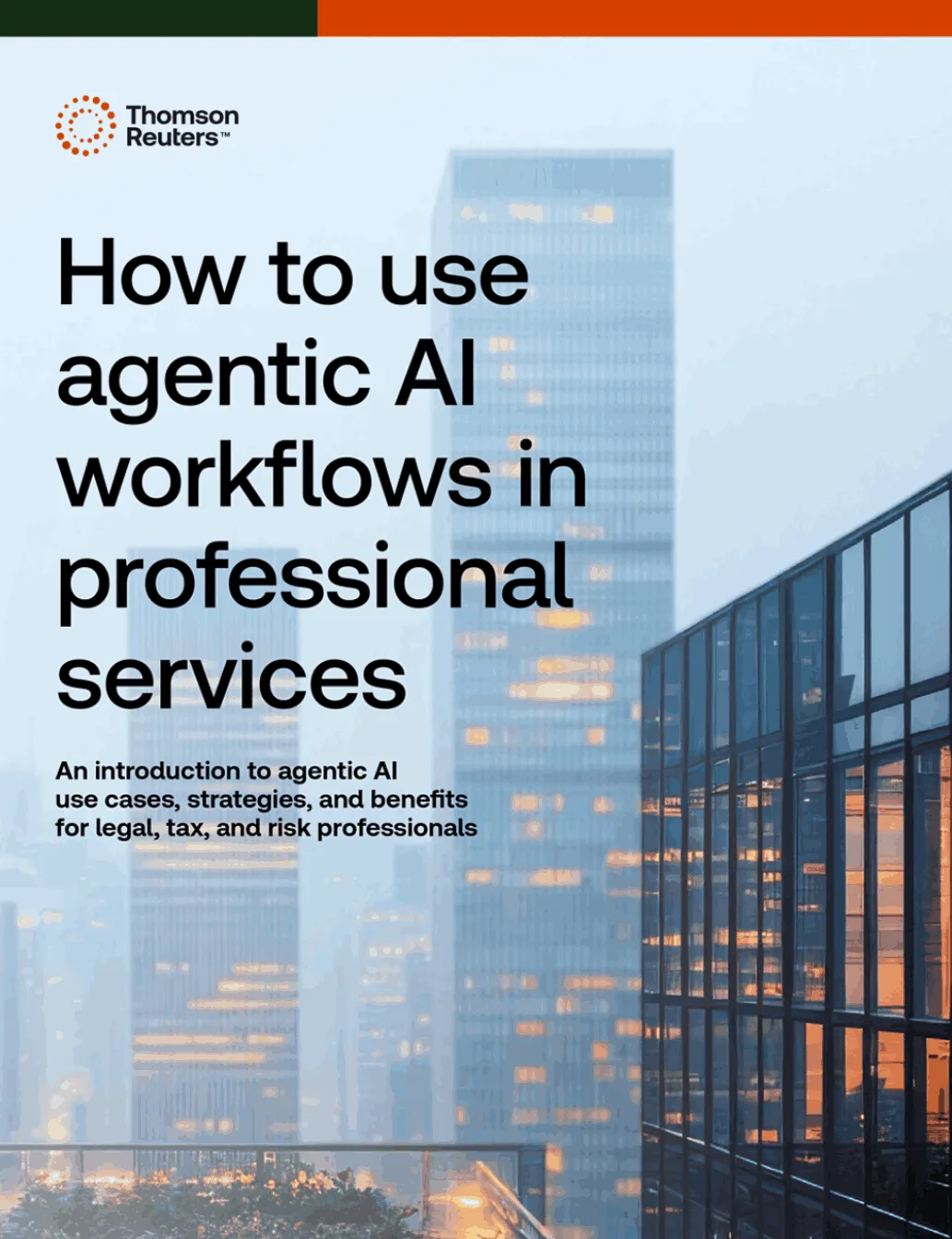Discover how agentic AI workflows can revolutionize risk and fraud investigations by automating data gathering, enhancing risk flagging, and accelerating decision-making processes.
Agentic AI is redefining operational excellence in fraud investigations and risk management. As a high-impact collaborator, it seamlessly integrates into professional workflows—automating complex processes, accelerating data analysis, and delivering actionable intelligence at scale. For professionals navigating high-risk environments, agentic AI offers a strategic edge: enabling teams to shift from manual data handling to insight-driven decision-making. The result is faster investigations, reduced exposure, and a sharper focus on outcomes that drive business resilience and growth.
Jump to ↓
| Overview of agentic AI in workflows |
| 5 key benefits of agentic AI for risk professionals |
| Challenges and solutions |
| Strategic reallocation of efforts |
| Case studies and examples |
| Implementing AI with purpose |
Overview of agentic AI in workflows
Agentic AI refers to artificial intelligence systems that can perform tasks autonomously, making decisions based on the data they analyze. In professional services, agentic AI workflows are designed to streamline complex processes, such as risk and fraud investigations. These workflows involve a series of steps, from initial prompts to final reports, that are executed with minimal human intervention.
The process begins with an initial prompt, where the investigator sets the objective, such as conducting a due diligence investigation on a potential vendor. The AI agent then creates a multi-step plan to gather, analyze, and synthesize the necessary data. This includes collecting data from multiple sources, such as court records, corporate registries, sanctions lists, and news archives.
5 key benefits of agentic AI for risk professionals
Agentic AI offers several benefits in risk and fraud investigations, including:
- Automated Data Gathering and Synthesis: Agentic AI automates the collection and integration of data from multiple sources, improving efficiency and reducing the risk of human error. By leveraging entity resolution techniques, agentic AI can accurately identify subjects, distinguishing them from others with similar names.
- Enhanced Risk Flagging: The AI agent builds a network map of the subject’s business connections, associates, and transaction history, flagging potential risks, such as links to sanctioned entities or shell companies.
- Faster Decision-Making: By automating routine tasks, agentic AI accelerates the investigation process, allowing professionals to make informed decisions more quickly.
- Training and Development: Agentic AI serves as a training and development tool for junior analysts, reducing the learning curve and reliance on senior staff.
The versatility of agentic AI is further highlighted by its ability to automate various tasks across different industries. For instance, it can be used to categorize transactions for sales and use tax compliance, investigate suspicious transactions, and analyze internal case files and external legal databases. This adaptability underscores the potential of agentic AI to transform not only risk and fraud investigations but also a wide range of professional services.
Challenges and solutions
Despite the benefits, there are common challenges and misconceptions associated with agentic AI. These include:
- Paralysis by Complexity: The rapid pace of technological change can be overwhelming. To address this, start with simple, accessible tasks to build confidence and momentum.
- Misinformation About AI: Debunking myths about AI hallucinations and unreliable outputs is crucial. It’s essential to use agentic AI solutions grounded in authoritative content to ensure accuracy and reliability.
- Workflow Integration Anxiety: The fear of AI disrupting established processes can be mitigated by implementing human-in-the-loop interactions. This allows professionals to validate assumptions and provide context, ensuring that AI outputs are reliable and actionable.
- Choosing the Right Partner: Selecting a partner with domain expertise, robust security, and a commitment to long-term innovation is critical for successful agentic AI adoption.
To successfully implement agentic AI, organizations should start with small, high-impact use cases, align AI adoption with business priorities, and measure its impact beyond surface-level efficiency. This includes focusing on change management, training, and support, as well as choosing the right partner with domain expertise and robust security.
Strategic reallocation of efforts
Agentic AI enables the strategic reallocation of efforts by:
- Automating Routine Tasks: Handling data gathering, synthesis, and risk flagging, freeing up analysts’ time for more strategic tasks.
- Focusing on High-Value Tasks: Concentrating on strategic risk mitigation and nuanced decision-making.
- Enhancing Collaboration: Facilitating better collaboration between junior and senior analysts, improving overall team performance.
By automating routine tasks, agentic AI allows professionals to focus on high-value work that requires expertise, judgment, and critical thinking. This not only enhances productivity but also leads to more effective risk management and fraud investigations.
Case studies and examples
Real-world examples illustrate the effectiveness of agentic AI in risk and fraud investigations. For instance, a financial institution used agentic AI to conduct a due diligence investigations on a potential vendor, uncovering previously unknown ties to sanctioned entities. This allowed the institution to make an informed decision and mitigate potential risks.
The application of agentic AI in various industries demonstrates its potential to drive significant improvements in efficiency, accuracy, and decision-making. As organizations continue to navigate the complexities of risk and fraud investigations, the adoption of agentic AI workflows is poised to become an increasingly important strategy.
Implementing AI with purpose
Agentic AI workflows have the potential to transform risk and fraud investigations by automating data gathering, enhancing risk flagging, and accelerating decision-making processes. By understanding the benefits and challenges associated with agentic AI, risk professionals can harness its power to improve their investigative capabilities.
To explore agentic AI solutions further and discover how they can enhance your risk management and fraud investigation processes, download our white paper, “How to use agentic AI workflows in professional settings.” Don’t miss this opportunity to stay ahead of the curve and revolutionize your approach to risk and fraud investigations.
Disclaimer
Thomson Reuters is not a consumer reporting agency, and none of its services or the data contained therein constitute a ‘consumer report’ as such term is defined in the Federal Fair Credit Reporting Act (FCRA), 15 U.S.C. sec. 1681 et seq. The data provided to you may not be used as a factor in consumer debt collection decisioning, establishing a consumer’s eligibility for credit, insurance, employment, government benefits, or housing, or for any other purpose authorized under the FCRA. By accessing one of our services, you agree not to use the service or data for any purpose authorized under the FCRA or in relation to taking an adverse action relating to a consumer application.












